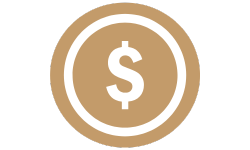Introduction: Why Credit Cards Matter
For many people, getting a credit card is the first real step into the world of personal finance. It’s a powerful financial tool—but when used improperly, it can also be one of the fastest ways to fall into debt. If you’re just getting started with credit cards, this guide will walk you through everything you need to know to use them smartly and stay in control of your money.
Whether you’re a student, a young professional, or someone rebuilding your financial foundation, understanding how credit cards work is essential for building credit, managing expenses, and avoiding common pitfalls.
Related: Let Us Help You Get Out of Debt: Proven Strategies to Regain Financial Freedom –
What Is a Credit Card and How Does It Work?
A credit card allows you to borrow money from a lender (usually a bank) to make purchases, up to a set credit limit. Unlike a debit card, which pulls money directly from your bank account, a credit card gives you access to borrowed funds that you agree to repay later—usually with interest if not paid in full by the due date.
Every month, you’ll receive a statement listing your charges, minimum payment due, and total balance. Paying the full balance by the due date helps you avoid interest charges and keeps your account in good standing.
The Benefits of Using a Credit Card Responsibly
Used wisely, credit cards can help you:
- Build credit history: Making consistent, on-time payments shows lenders you’re responsible.
- Earn rewards: Many cards offer points, cashback, or travel miles.
- Cover emergencies: A credit card can act as a backup if your car breaks down or an unexpected bill pops up.
- Protect purchases: Most cards offer fraud protection and extended warranties.
Common Mistakes Beginners Make
Although credit cards offer convenience, there are a few common missteps to avoid:
- Making only the minimum payment: This can lead to interest piling up and years of repayment.
- Maxing out your credit limit: Using too much of your available credit can hurt your credit score.
- Missing payments: Just one missed payment can damage your credit and result in late fees.
- Opening too many accounts at once: This can lower your average account age and confuse your budget.
Choosing Your First Credit Card
When selecting your first credit card, it’s important to consider:
- Annual fees: Some cards charge yearly fees, while others do not.
- Interest rate (APR): Lower is better, especially if you might carry a balance.
- Credit limit: This is how much you can charge on the card.
- Rewards or benefits: Some cards offer cash back, others offer travel points.
- Student or secured cards: These are ideal for beginners with limited or no credit history.
Before applying, compare several options and use a prequalification tool when possible to avoid unnecessary credit inquiries.
How to Use Your Credit Card the Smart Way
Once you’ve opened your account, follow these best practices to stay in control:
- Set up automatic payments to avoid missing due dates.
- Keep your balance low—ideally under 30% of your limit.
- Track your spending with budgeting tools or apps.
- Use rewards wisely—only redeem them if it doesn’t cost you more.
- Review statements each month to catch errors or fraud.
What If You Make a Mistake?
If you overspend or miss a payment, don’t panic. Instead:
- Call your credit card issuer and ask if they’ll waive the late fee (they often will for a first offense).
- Make a plan to pay down your balance as quickly as possible.
- Set up alerts or automatic payments to avoid future mistakes.
Remember, one misstep doesn’t define your credit journey—it’s how you respond that matters most.
Building Credit Takes Time
As you continue to use your credit card responsibly, your credit score will improve. Lenders will look at your payment history, credit utilization, and account age when evaluating your creditworthiness.
If your goal is to eventually qualify for a mortgage, car loan, or premium rewards card, this is the first important step. Just be patient—it can take six months or more to build enough credit history for noticeable changes.
Final Thoughts: Credit Cards Are Tools, Not Traps
Used correctly, credit cards can be powerful tools for financial growth and flexibility. But like any tool, they can cause damage if misused. The key is to stay informed, be intentional, and treat credit as part of your overall financial plan.
At Smart Money MVP, we’re here to help you get started the right way—by using credit to your advantage without falling into debt. Keep reading to learn more about how credit card interest works and how to protect your financial health for the long haul.
Disclaimer: The content on this post is for informational and educational purposes only and should not be considered professional financial advice. Your path to a debt-free and financially secure future awaits!

